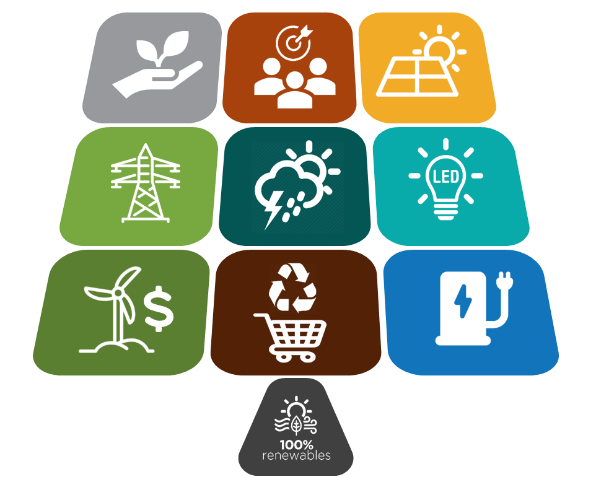Over the last two years, the MidCoast region has experienced firsthand the disastrous effects of climate change including the worst bushfire season on record, which burnt a quarter of the local government area and resulted in a significant loss of biodiversity, life and property; an increase in the number of intense storm events resulting in coastal erosion and localised flooding; and a substantial reduction in annual rainfall leading to a crippling drought and the introduction of Level 4 (severe) water restrictions for the very first time.
Since 2009, the MidCoast LGA has also had 23 natural disaster declarations; the second worst affected council area in NSW (NSW Office of Emergency Management, 2020).
MidCoast Council recognises a state of climate emergency exists, with the elected Councillors declaring a climate emergency in October 2019. In declaring a state of climate emergency, Council affirmed that urgent action is required by all levels of government, including local councils, to avert a climate crisis.
To help us do this, Council has prepared a Climate Change Policy and Strategy, to both manage and reduce our greenhouse emissions, and adapt our practices and infrastructure to become more resilient to the impacts of climate change.
In adopting these documents, MidCoast Council has committed to achieving net zero greenhouse emissions from its operations (including facilities, fleet and waste) and 100% renewable electricity for its operations by 2040.
Over 150 actions are proposed in the Strategy to meet these targets and Council will offset those emissions that can’t be mitigated by purchasing renewable energy and investing in local carbon sequestration initiatives such as tree planting programs and the restoration of coastal wetlands.
The Strategy also identifies a range of measures to increase the resilience of Council’s operations to the impacts of climate change, including the increased risk of flooding and bushfire, accelerated coastal erosion, and a reduction in annual rainfall, river flow and water supply.
It is important to note that the Strategy is just the first phase of Council’s response to climate change and is focused on Council’s assets and operations so that we can learn and lead by example. The second phase will focus on working with the community to develop an action plan to reduce the region’s greenhouse emissions and to help the community adapt to the unavoidable impacts of climate change.






